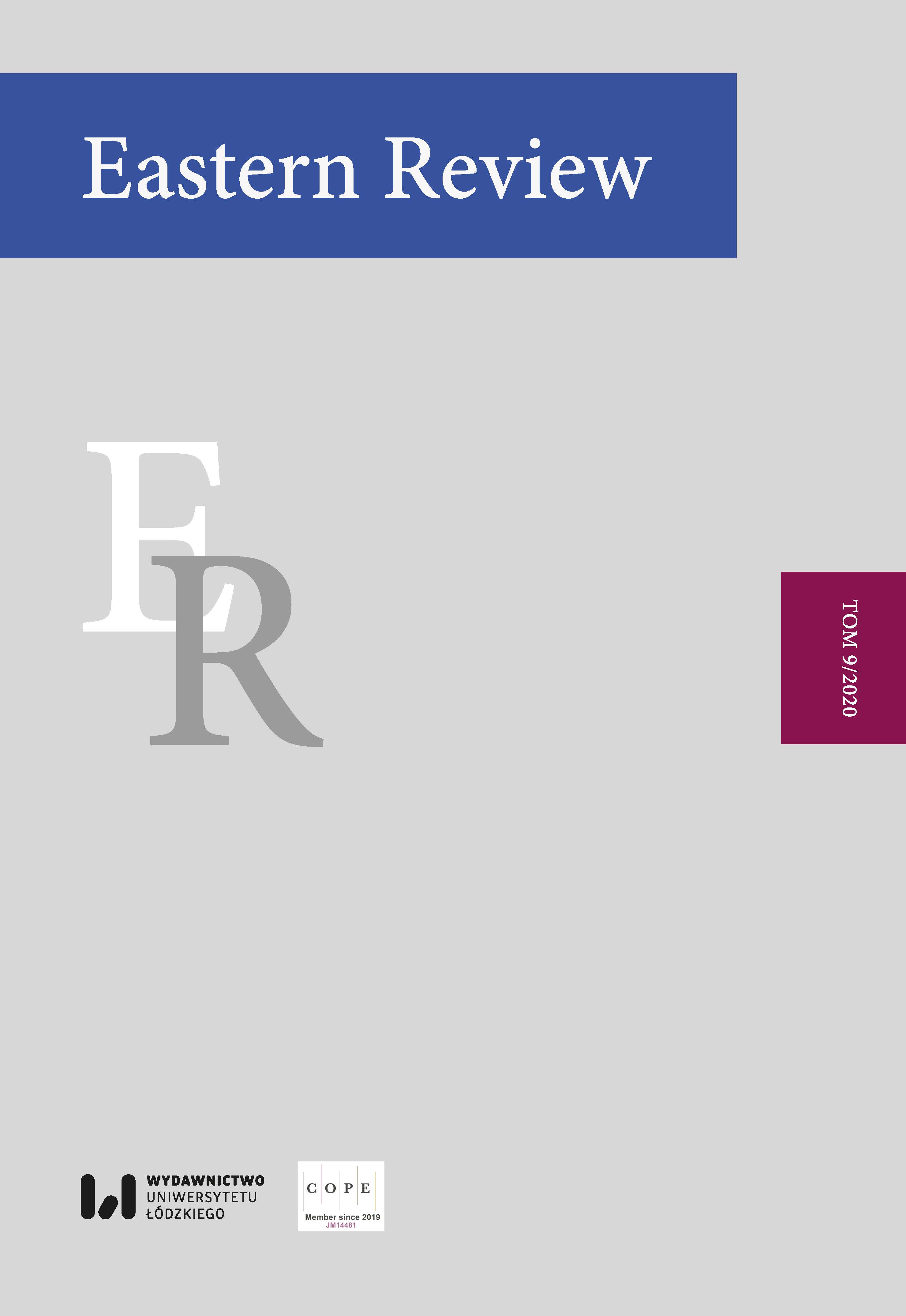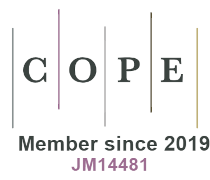Hegel, revolution, and the rule of law
DOI:
https://doi.org/10.18778/1427-9657.09.02Słowa kluczowe:
G.W.F. Hegel, philosophy, revolution, rule of lawAbstrakt
Georg Wilhelm Friedrich Hegel was one of the philosophic giants of the nineteenth century. Well versed in both ancient and more recent philosophical tracts, he rejected the individualism of Hobbes and Locke, as well as their notion that the state was an agency set up in the first place to protect life and property, and, drawing inspiration from Aristotle, outlined a vision of the state as an agency bound, in the first place, to protect the weak and the powerless. Hegel further rejected Kant’s individualistic ethics and counseled that ethical behavior had to be understood as taking place in a social context, with real duties toward other people. For Hegel, an individual had rights and duties within the context of the family, in the community, and, as a citizen, vis-à-vis the state. He emphasized the network of duties in which each individual finds himself, urging political moderation and concern for the good of the entire community. He has been condemned as a proto-totalitarian, lauded as a democrat of sorts, and described variously as liberal, anti-liberal, authoritarian, conservative-monarchist, and constitutionalist. This essay will argue that Hegel came to champion a constitutional-legal order (Rechtsstaat) under an autocratic monarch, with protection for liberal values. The absolute authority of the monarch, thus, was limited to those powers which he needed in order to advance and protect the interests of the citizens of the realm.
Bibliografia
Albrecht, R. 1978. Hegel und die Demokratie. Bonn: Bouvier Verlag Herbert Grundmann.
Google Scholar
Alcoff, L. 2010. Continental Epistemology. In: J. Dancy, E. Sosa, M. Steup (eds.). A Companion to Epistemology, 2nd ed. Vol. 4. Chichester: Wiley-Blackwell, pp. 287–292.
Google Scholar
Avineri, S. 1968. Hegel Revisited. Journal of Contemporary History 3(2), pp. 133–147.
Google Scholar
DOI: https://doi.org/10.1177/002200946800300208
Avineri, S. 1972. Hegel’s Theory of the Modern State. Cambridge: Cambridge University Press.
Google Scholar
DOI: https://doi.org/10.1017/CBO9781139171441
Beiser, F.C. (ed.). 1993. The Cambridge Companion to Hegel. Cambridge: Cambridge University Press.
Google Scholar
DOI: https://doi.org/10.1017/CCOL0521382742
Brooks, T. 2007. No Rubber Stamp: Hegel’s Constitutional Monarch. History of Political Thought 28(1), pp. 91–119.
Google Scholar
Buck-Morss, S. 2000. Hegel and Haiti. Critical Inquiry 26(4), pp. 821–865.
Google Scholar
DOI: https://doi.org/10.1086/448993
Buck-Morss, S. 2009. Hegel, Haiti, and Universal History. Pittsburgh, Pennsylvania: University of Pittsburgh Press.
Google Scholar
DOI: https://doi.org/10.2307/j.ctt7zwbgz
Cristi, F.R. 1983. The Hegelsche Mitte and Hegel’s Monarch. Political Theory 11(4), pp. 601–622.
Google Scholar
DOI: https://doi.org/10.1177/0090591783011004007
Cristi, F.R. 1989. Hegel’s Conservative Liberalism. Canadian Journal of Political Science/Revue canadienne de science politique 22(4), pp. 717–738.
Google Scholar
DOI: https://doi.org/10.1017/S0008423900020229
Cristi, F.R. 2005. Hegel on freedom and authority. Cardiff: University of Wales Press.
Google Scholar
Dancy, J., Sosa, E., Steup, M. (eds.). 2010. A Companion to Epistemology, 2nd ed., Vol. 4. Chichester: Wiley-Blackwell.
Google Scholar
DOI: https://doi.org/10.1002/9781444315080
Durán De Seade, E. 1979. State and History in Hegel’s Concept of People. Journal of the History of Ideas 40(3), pp. 369–384.
Google Scholar
DOI: https://doi.org/10.2307/2709243
Ferrarin, A. 2004. Hegel and Aristotle.Cambridge: Cambridge University Press.
Google Scholar
Ferrarin, A. 2007. Hegel and Aristotle.Cambridge: Cambridge University Press.
Google Scholar
Garza, Jr.A. 1990–1991. Hegel’s Critique of Liberalism and Natural Law: Reconstructing ethical life. Law and Philosophy 9(4), pp. 371–398.
Google Scholar
DOI: https://doi.org/10.1007/BF00212704
Goldstein, L.J. 1962. The Meaning of ‘State’ in Hegel’s Philosophy of History. The Philosophical Quarterly 12(46), pp. 60–72.
Google Scholar
DOI: https://doi.org/10.2307/2216840
Hegel, G.W.F. 1953. Reason in History. Trans. R.S. Hartman. Indianapolis: Bobbs-Merrill Co.
Google Scholar
Hegel, G.W.F. 1967a. Philosophy of Right. Trans. T.M. Knox. London & Oxford: Oxford University Press.
Google Scholar
Hegel, G.W.F. 1967b. The Phenomenology of Mind. Trans. J.B. Baillie. New York: Harper & Row.
Google Scholar
Hegel, G.W.F. 1969. Hegel’s Science of Logic. Trans. A.V. Miller. London: Allen & Unwin. Reissued by Humanity Books of New York.
Google Scholar
Hegel, G.W.F. 1971. The German Constitution. In: Hegel’s Political Writings. 1964. Trans. T.M. Knox. Oxford: Clarendon Press, pp. 6–258.
Google Scholar
Henrich, D. 1983. Vernunft in Verwirklung. In: G.W.F. Hegel. Philosophie des Rechts. Die Vorlesungen von 1819/20 in einer Nachschrift. D. Henrich (ed.). Frankfurt am Main: Suhrkamp.
Google Scholar
Inyang, J. 2005. Hegel’s Idea of the Absolute and African Philosophy. In: Ibuanyidanda (Complementary Reflection), African Philosophy and General Issues in Philosophy, http://www.frasouzu.com/Issues%20and%20Papers/Inyang%20John%20on%20HEGELS%20IDEA%20OF%20THE%20ABSOLUTE%20AND%20AFRICAN%20PHILOSOPHY.pdf (accessed 15.08.2011).
Google Scholar
Jaeschke, W. 1981. Christianity and Secularity in Hegel’s Concept of the State. Journal of Religion 61(2), pp. 127–145.
Google Scholar
DOI: https://doi.org/10.1086/486847
Kaufmann, W.A. 1954. Hegel’s Early Antitheological Phase. The Philosophical Review 63(1), pp. 3–18.
Google Scholar
DOI: https://doi.org/10.2307/2182112
Kelly, G.A. 1972. Hegel’s America. Philosophy & Public Affairs 2(1), pp. 3–36.
Google Scholar
Kroner, R. 1921, 1924. Von Kant bis Hegel. 2 Vols. Tübingen: Mohr.
Google Scholar
Kroner, R. 1941. God, Nation, and Individual in the Philosophy of Hegel. Philosophy and Phenomenlogical Research 2(2), pp. 188–198.
Google Scholar
DOI: https://doi.org/10.2307/2102929
Lichtheim, G. 1967. Introduction to the Torchbook Edition. In: G.W.F. Hegel. The Phenomenology of Mind. Trans. J.B. Baillie. New York: Harper & Row.
Google Scholar
Mertens, T. 1995. Hegel’s Homage to Kant’s Perpetual Peace: An Analysis of Hegel’s “Philosophy of Right”. The Review of Politics 57(4), pp. 321–340.
Google Scholar
DOI: https://doi.org/10.1017/S0034670500018672
Neuhouser, F. 2000. Foundations of Hegel’s Social Theory: Actualizing Freedom. Cambridge, Mass.: Harvard University Press.
Google Scholar
Nohl, H. (ed.). 1907. Hegels theologische Jugendschriften, nach den Handschriften der Kgl. Bibliothek in Berlin. Tübingen and Frankfurt am Main: Minerva.
Google Scholar
Patten, A. 1999. Hegel’s idea of freedom. Oxford: Oxford University Press.
Google Scholar
Pelczynski, Z.A. (ed.). 1971. Hegel’s Political Philosophy – problems and perspectives. Cambridge: Cambridge University Press.
Google Scholar
Philosophie des Rechts: Die Vorselung von 1819/290 in einer Nachschrift. 1983. Frankfurt am Main: Suhrkamp.
Google Scholar
Pinkard, T. 1986. Freedom and Social Categories in Hegel’s Ethics. Philosophy and Phenomenological Research 47(2), pp. 209–232.
Google Scholar
DOI: https://doi.org/10.2307/2107437
Pippin, R.B. 2008. Hegel’s practical philosophy: Rational agency as ethical life. Cambridge: Cambridge University Press.
Google Scholar
DOI: https://doi.org/10.1017/CBO9780511808005
Pippin, R.B. 2011. Hegel on Self-Consciousness: Desire and death in The Phenomenology of Spirit. Princeton, N.J.: Princeton University Press.
Google Scholar
DOI: https://doi.org/10.1515/9781400836949
Ramet, P. 1983. Kantian and Hegelian Perspectives on Duty. Southern Journal of Philosophy 21(2), pp. 281–299.
Google Scholar
DOI: https://doi.org/10.1111/j.2041-6962.1983.tb01508.x
Ritter, J. 1965. Hegel und die französische Revolution. Frankfurt am Main: Suhrkamp.
Google Scholar
Senigaglia, C. 2007. Verfassungseinheit und Gewaltenausgleich: Hegels Auseinandersetzung. Parliaments, Estates and Representation 27(1), pp. 37–56.
Google Scholar
DOI: https://doi.org/10.1080/02606755.2007.9522252
Shklar, J.N. 1976. Freedom and Independence: A Study of the Political Ideas of Hegel’s Phenomenology of Mind. Cambridge: Cambridge University Press.
Google Scholar
Smith, S.B. 1986. Hegel’s Critique of Liberalism. American Political Science Review 80(1), pp. 121–139.
Google Scholar
DOI: https://doi.org/10.2307/1957087
Smith, S.B. 1989a. Hegel’s Critique of Liberalism: Rights in Context. Chicago: University of Chicago Press.
Google Scholar
Smith, S.B. 1989b. What is ‘Right’ in Hegel’s Philosophy of Right? American Political Science Review 83(1), pp. 3–18.
Google Scholar
DOI: https://doi.org/10.2307/1956431
Stillman, P.G. 1974. Hegel’s Critique of Liberal Theories of Rights. American Political Science Review 68(3), pp. 1086–1092.
Google Scholar
DOI: https://doi.org/10.2307/1959149
Stillman, P.G. 1980. Hegel’s Civil Society: A Locus of Freedom. Polity 12(4), pp. 622–646.
Google Scholar
DOI: https://doi.org/10.2307/3234303
Suter, J.F. 1971. Burke, Hegel, and the French Revolution. In: Z.A. Pelczynski (ed.). Hegel’s Political Philosophy – problems and perspectives. Cambridge: Cambridge University Press, pp. 52–72.
Google Scholar
Taylor, C. 1975. Hegel. Cambridge: Cambridge University Press.
Google Scholar
Taylor, C. 1979. Hegel and Modern Society. New York: Cambridge University Press.
Google Scholar
DOI: https://doi.org/10.1017/CBO9781316286630
Taylor, C. 2008. Hegel. Cambridge: Cambridge University Press.
Google Scholar
Taylor, C. 2015. Hegel and Modern Society. Cambridge: Cambridge University Press.
Google Scholar
Tunick, M. 1998. Hegel on Justified Disobedience. Political Theory 26(4), pp. 514–535.
Google Scholar
DOI: https://doi.org/10.1177/0090591798026004004
Westphal, K. 1993. The basic context and structure of Hegel’s Philosophy of Right. In: F.C. Beiser (ed.). Cambridge Companion to Hegel. Cambridge: Cambridge University Press, pp. 234–269.
Google Scholar
DOI: https://doi.org/10.1017/CCOL0521382742.009
Wiedmann, F. 2003. Georg Wilhelm Friedrich Hegel. Reinbek bei Hamburg: Rowohlt Taschenbuch Verlag.
Google Scholar
Wokler, R. 1998. Contextualizing Hegel’s Phenomenology of the French Revolution and the Terror. Political Theory 26(1), pp. 33–55.
Google Scholar
DOI: https://doi.org/10.1177/0090591798026001003
Wood, A.W. 1990. Hegel’s ethical thought. Cambridge: Cambridge University Press.
Google Scholar
Wood, A.W. 1993. Hegel’s ethics. In: F.C. Beiser (ed.). Cambridge Companion to Hegel. Cambridge: Cambridge University Press, pp. 211–233.
Google Scholar
DOI: https://doi.org/10.1017/CCOL0521382742.008
Pobrania
Opublikowane
Jak cytować
Numer
Dział
Licencja

Utwór dostępny jest na licencji Creative Commons Uznanie autorstwa – Użycie niekomercyjne – Bez utworów zależnych 4.0 Międzynarodowe.










